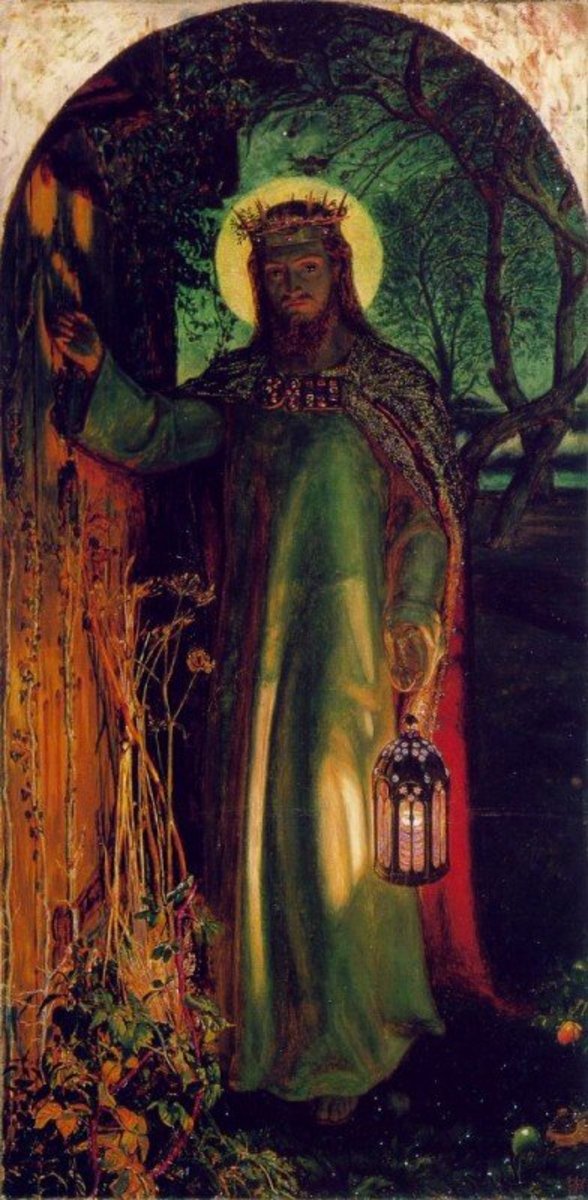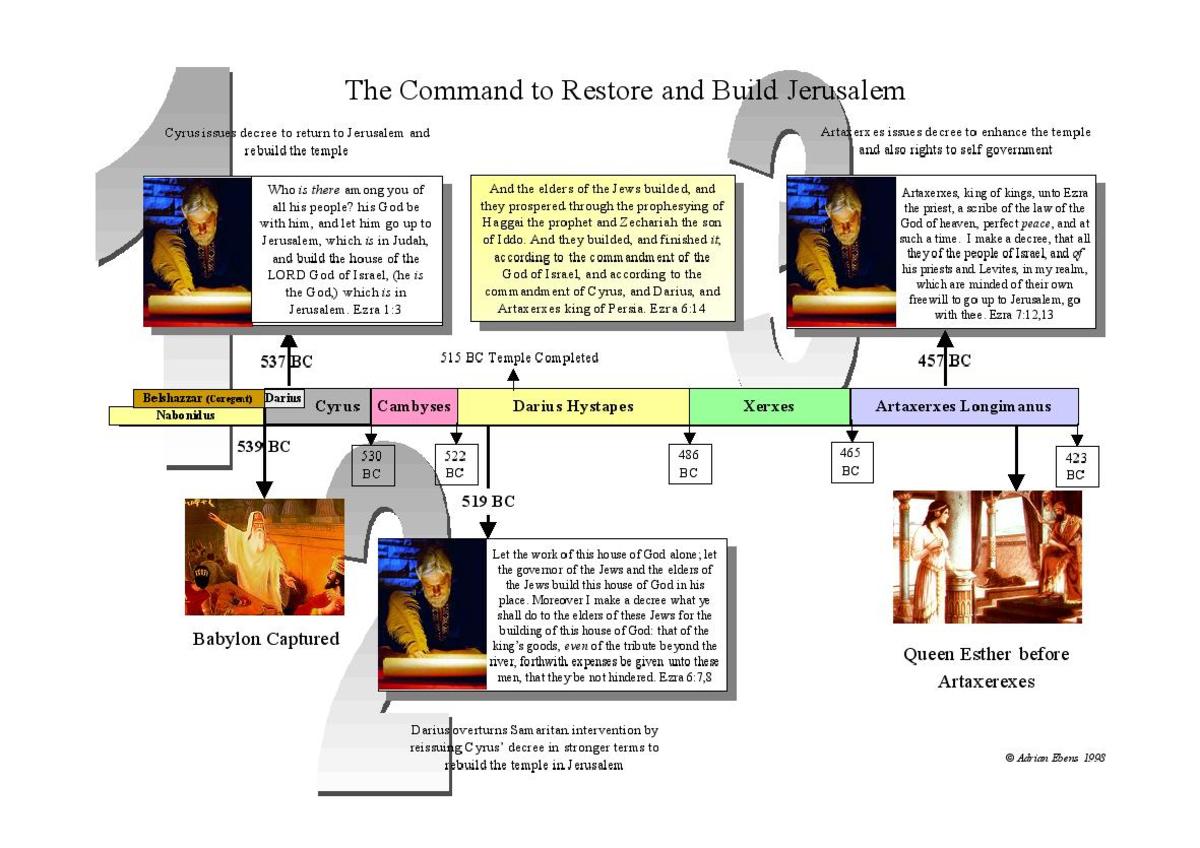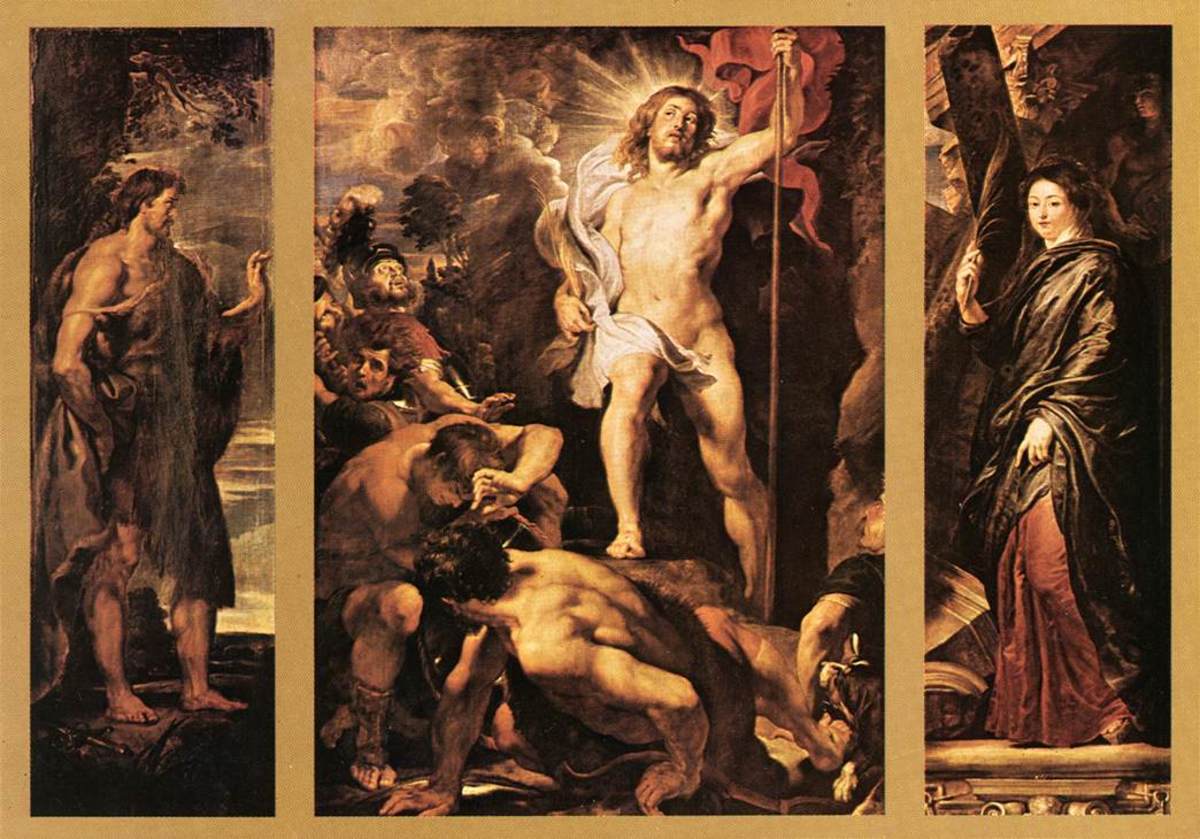The Last Days According to the Epistles
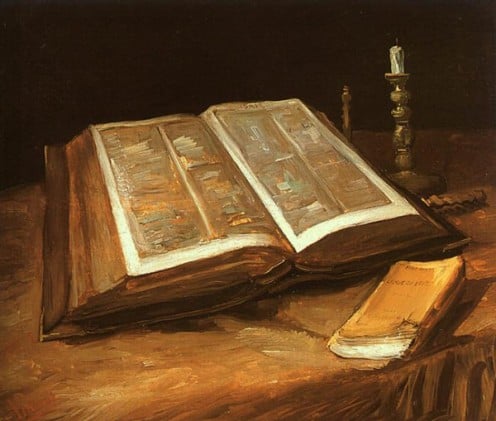
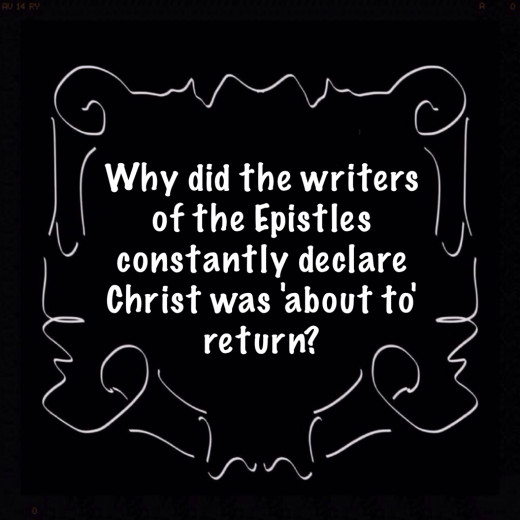
Introduction
Recently, I received challenging comments from a visitor to my article 'Jesus Fulfilled the Promise of His Second Coming'. The posts contained 41 verses of Scripture in opposition to my 'end times' view, with a significant number from the Epistles. Hence, I will attempt to support my view by quoting the writers of the Epistles.
Three important facets for consideration:
(a) Translation (b) Tribulation (c) Transition
Translations of the Bible
The King James Version
Translating the Scriptures from Hebrew and Greek into English has been a formidable task for translators. A huge debt of gratitude is owed to the scholars who dedicated their lives to translating the Scriptures for our enlightenment.
Personally, I favour the King James Version, but I acknowledge there are inconsistencies that require careful scrutiny. My second choice is Young's Literal Translation.
Robert Young's Literal Translation
Robert Young was born in Edinburgh, Scotland in 1822 and died in 1888. He was a member of the Free Church of Scotland, formed in 1843. His printing company first published his Literal Translation of the Bible in 1862. Many scholars have paid tribute to his literary works.
Robert Young, by diligence and dedication, uncompromisingly highlighted discrepancies in previous translations that may have curtailed our understanding of the Scriptures relating to the 'last days'.
The Greek 'Mello'
A prime example of inconsistency in the King James, as well as other versions, is the translation of the Greek ‘mello’, which literally means ‘about to’. Fortunately, Young was articulate throughout his translation, thereby allowing us further insight for our deliberation.
A Quote from Strong’s Hebrew and Greek Dictionaries
‘G3195 μέλλω mellō mel’-lo – A strengthened form of G3199 (through the idea of expectation); to intend, that is, be about to be, do, or suffer something (of persons or things, especially events; in the sense of purpose, duty, necessity, probability, possibility, or hesitation): – about, after that, be (almost), (that which is, things, + which was for) to come, intend, was to (be), mean, mind, be at the point, (be) ready, + return, shall (begin), (which, that) should (after, afterwards, hereafter) tarry, which was for, will, would, be yet.’
King James Concordance
‘Mello’ appears 82 times in the King James Concordance, translated five times only as ‘about to’ and never in verses associated with the ‘end times’.
It is of course essential to consider context, audience relevance, and prevailing circumstances when using a literal translation. Nevertheless, if the literal meaning of ‘mello’ (about to) was not applicable on 77 occasions out of 82, then surely the New Testament writers would have chosen an alternative Greek word to convey what they meant.
Providing we are willing to lay aside presupposition and take a fresh look at the Epistles, we will find an even greater level of expectation concerning the ‘about to’ return of Christ.
'Mello' the Gospels and Acts of the Apostles
Examine closely the following Scriptures and notice the sense of immediacy in Young's translation. I use the word immediacy since Dispensationalism has sabotaged the meaning of imminency.
In Young's version, Matthew wrote the Son of Man 'is about to' come in judgement. Similarly, Luke proclaimed the Olivet discourse prophecies 'are about to come to pass'. Paul taught the resurrection was 'about to' take place!
A prolonged delay of 2000 years in Christ's return was never on the agenda as far as Jesus and the Apostles were concerned. Did they get it wrong? Of course they didn't.
King James Version
| Young's Literal Translation
|
|---|---|
Mat 16:27 KJV For the Son of man "shall come in the glory" of his Father with his angels; and then he shall reward every man according to his works.
| Mat 16:27 YLT 'For, the Son of Man "is about to come in the glory" of his Father, with his messengers, and then he will reward each, according to his work.
|
Luk 21:36 KJV Watch ye therefore, and pray always, that ye may be accounted worthy to escape all these things "that shall come to pass", and to stand before the Son of man.
| Luk 21:36 YLT watch ye, then, in every season, praying that ye may be accounted worthy to escape all these things "that are about to come to pass", and to stand before the Son of Man.'
|
Act 17:31 Because he hath appointed a day, in the which he "will judge the world" in righteousness by that man whom he hath ordained; whereof he hath given assurance unto all men, in that he hath raised him from the dead.
| Act 17:31 because He did set a day in which "He is about to judge the world" in righteousness, by a man whom He did ordain, having given assurance to all, having raised him out of the dead.'
|
Act 24:15 KJV And have hope toward God, which they themselves also allow, that there "shall be a resurrection" of the dead, both of the just and unjust.
| Act 24:15 YLT having hope toward God, which they themselves also wait for, that there "is about to be a rising again of the dead", both of righteous and unrighteous;
|
Act 24:25 KJV And as he reasoned of righteousness, temperance, and "judgment to come", Felix trembled, and answered, Go thy way for this time; when I have a convenient season, I will call for thee.
| Act 24:25 YLT and he reasoning concerning righteousness, and temperance, and the "judgment that is about to be", Felix, having become afraid, answered, 'For the present be going, and having got time, I will call for thee;'
|
(Highlights " by the author)
Do you believe born again Christians have received their inheritance?
The Greek 'Aion'
Another example relevant to understanding the Epistles is Young's translation of the Greek 'aion', which literally means 'age', as in 'period of time'.
A Quote from Strong's Hebrew and Greek Dictionaries
'G165 αἰών aiōn ahee-ohn' - From the same as G104; properly an age; by extension perpetuity (also past); by implication the world; specifically (Jewish) a Messianic period (present or future): - age, course, eternal, (for) ever (-more), [n-]ever, (beginning of the, while the) world (began, without end). Compare G5550.'
King James Concordance
'Aion' appears 129 times in the King James Concordance, 72 times translated 'ever', 37 times 'world', but never 'age'. This is extremely misleading.
In Matthew 13, Jesus endorsed John the Baptist's warnings of pending judgement on Old Covenant Israel. During the parable of the sower Jesus revealed the timeline of the fiery judgement, not at the 'end of the world', but at the 'full end of the age' (aion). What 'age' was Jesus referring to? Many scholars contend Jesus taught the judgement was at the end of the world, while others the end of the so-called 'Church' Age. Taking into account the correct translation of 'aion', along with context, audience relevance, Old Testament prophecy, and the predictions of Jesus, the 'age' was obviously the Old Covenant Age.
King James Version
| Young's Literal Translation
|
|---|---|
Mat 13:39-41 KJV The enemy that sowed them is the devil; the harvest is the "end of the world"; and the reapers are the angels. 40 As therefore the tares are gathered and burned in the fire; so shall it be in the "end of this world". 41 The Son of man shall send forth his angels, and they shall gather out of his kingdom all things that offend, and them which do iniquity;
| Mat 13:39-41 YLT and the enemy who sowed them is the devil, and the harvest is a "full end of the age", and the reapers are messengers. 40 `As, then, the darnel is gathered up, and is burned with fire, so shall it be in the "full end of this age", 41 the Son of Man shall send forth his messengers, and they shall gather up out of his kingdom all the stumbling-blocks, and those doing the unlawlessness,
|
Mat 24:3 KJV And as he sat upon the mount of Olives, the disciples came unto him privately, saying, Tell us, when shall these things be? and what shall be the sign of thy coming, and of the "end of the world"?
| Mat 24:3 YLT And when he is sitting on the mount of the Olives, the disciples came near to him by himself, saying, `Tell us, when shall these be? and what is the sign of thy presence, and of the "full end of the age"?'
|
(Highlights" by the author)
Nero's Torches
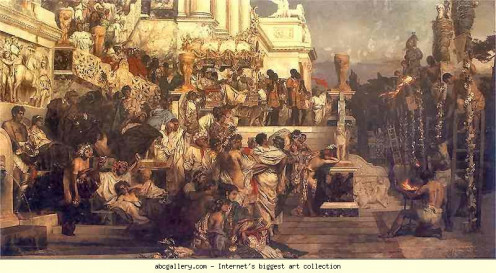
Tribulation
The Apostles wrote the Epistles during a time of intense trials and hardship for believers 'in Christ'. Not only persecution and martyrdom during the rule of Emperor Nero, the Church also suffered persecution instigated by Jewish religious leaders in a vain attempt to extirpate Christianity. Consequently, Judaisers infiltrated the Church to undermine the teachings established by the Apostles, hence the need for the Epistles. These letters were a source of encouragement, guidance, and teaching, while believers awaited the fulfillment of Christ's 'Olivet' prophecy.
Considering the early Church was going through such tribulation, it is inconceivable to imagine the Holy Spirit would have inspired the Apostles to emphasise Christ was 'about to' return, knowing the event was 2000 years in the future.
Consider the following Scriptures:
King James Version
| Young's Literal Translation
|
|---|---|
Rom 8:18 KJV For I reckon that the sufferings of this present time are not worthy to be compared with the glory "which shall be revealed" in us.
| Rom 8:18 YLT For I reckon that the sufferings of the present time are not worthy to be compared with the glory "about to be revealed" in us;
|
Rom 8:39 KJV Nor height, nor depth, nor any other creature, shall be able to separate us from the love of God, which is in Christ Jesus our Lord.
| Rom 8:39 YLT "nor things about to be", nor height, nor depth, nor any other created thing, shall be able to separate us from the love of god, that is in Christ Jesus our Lord.
|
Rev 1:19 KJV Write the things which thou hast seen, and the things which are, and the things "which shall be" hereafter;
| Rev 1:19 YLT `Write the things that thou hast seen, and the things that are, and the things "that are about to come" after these things;
|
(Highlights" by the author)
Saint Paul Writing His Epistles

The Transition Period AD 30 - AD 70
A further aspect to take into consideration concerning the Epistles is the 1st century Church lived through a period of covenantal change, described by some scholars as the Transition Period, or the 'already, but not yet'. This was a work in progress during Christ's ministry on Earth until the judgement in AD 70.
The Day of the Lord
Destruction and Dispersion
The Old Covenant Age was about to come to a catastrophic end, culminating in the great tribulation and judgement at the return of Christ.
Old Covenant Israel began with a 40 years period of wandering in the wilderness, and about to end with a 40 years period of subjugation and suffering.
1Pe 2:9-10 YLT and ye are a choice race, a royal priesthood, a holy nation, a people acquired, that the excellences ye may shew forth of Him who out of darkness did call you to His wondrous light; 10 who were once not a people, and are now the people of God; who had not found kindness, and now have found kindness.
At the end of the transition period, the saints inherited the fulness of salvation and the Kingdom of God. Meanwhile, the Romans destroyed Old Covenant Israel and scattered abroad the survivors.
The Day of Redemption
Salvation
- Heb 1:14 YLT are they not all spirits of service—for ministration being sent forth because of those about to inherit salvation.
Through the sacrificial death of the Lord Jesus Christ, 1st century believers were 'heirs' of salvation, the 'already, but not yet'. Believers were empowered by the Holy Spirit who was their guarantee while they awaited with anticipation the fulness of their salvation.
- Heb 9:28 YLT so also the Christ, once having been offered to bear the sins of many, a second time, apart from a sin-offering, shall appear, to those waiting for him—to salvation!
The Old Covenant high priest was a type and foreshadow of the Lord Jesus Christ, our great High Priest.
On the Day of Atonement, Old Covenant Israel did not celebrate the forgiveness of their sins for that year until the high priest returned to the congregation from the temple Holy of Holies. The Lord Jesus Christ, the antitype, returned from the heavenly Holy of Holies to complete the redemption of the saints. Hence, the Epistles encouraged the faithful to continue through trials and persecution until the Day of Redemption.
Many scholars take issue with this view, insisting that believers still await the consummation of their salvation, even after 2000 years and counting!
- 1Pe 1:4-6 YLT to an inheritance incorruptible, and undefiled, and unfading, reserved in the heavens for you, 5 who, in the power of God are being guarded, through faith, unto salvation, ready to be revealed in the last time, 6 in which ye are glad, a little now, if it be necessary, being made to sorrow in manifold trials,
In his Epistle, Peter wrote to believers their trials would strengthen their faith and build character, bringing praise, honour, and glory, to Christ at His return.
According to Peter the great and the terrible Day of the Lord was at hand... Acts 2:19-20.
The Kingdom of God
Mat 21:42 YLT Jesus saith to them, `Did ye never read in the Writings, A stone that the builders disallowed, it became head of a corner; from the Lord hath this come to pass, and it is wonderful in our eyes. 43 `Because of this I say to you, that the reign of God shall be taken from you, and given to a nation bringing forth its fruit;
Jesus told the Scribes and the Pharisees, because of corruption, desecration of the temple offerings, and their rejection of the Messiah, they had forfeited the Kingdom.
To a certain extent the saints already reigned with Christ during the 'already, but not yet'. However, during the transition period those 'in Christ' awaited patiently the casting out of all Christ's enemies that they might inherit the fulness of the Kingdom of God.
- 1Pe 2:9 YLT and ye are a choice race, a royal priesthood, a holy nation, a people acquired, that the excellences ye may shew forth of Him who out of darkness did call you to His wondrous light; 10 who were once not a people, and are now the people of God; who had not found kindness, and now have found kindness.
Peter identified in his Epistle the nation to inherit the Kingdom, the elect remnant along with the Gentiles who were 'graffed' into the Israel of God.
Consider the following Scriptures:
King James Version
| Young's Literal version
|
|---|---|
2Ti 4:1 KJV I charge thee therefore before God, and the Lord Jesus Christ, "who shall judge" the quick and the dead at his appearing and his kingdom;
| 2Ti 4:1 YLT I do fully testify, then, before God, and the Lord Jesus Christ, who "is about to judge" living and dead at his manifestation and his reign--
|
Heb 6:5 KJV And have tasted the good word of God, and the "powers of the world" to come,
| Heb 6:5 YLT and did taste the good saying of God, the "powers also of the coming age",
|
Heb 10:27 KJV But a certain fearful looking for of judgment and fiery indignation, "which shall devour" the adversaries.
| Heb 10:27 YLT but a certain fearful looking for of judgment, and fiery zeal, "about to devour" the opposers;
|
(Highlights " by the author)
Has this Hub challenged you to search the Scriptures?
Conclusion
Rev 21:3 and I heard a great voice out of the heaven, saying, 'Lo, the tabernacle of God is with men, and He will tabernacle with them, and they shall be His peoples, and God Himself shall be with them—their God,
In the New Covenant Age, 'born again' believers have received their inheritance, salvation, and the Kingdom. Today, those 'in Christ' have an abundant entrance into the Holy of Holies, and fellowship with the Father, Son, and Holy Spirit.
Consider the following blessings and rejoice in our wonderful Redeemer!
It's a done deal!
What do you think?
The New Covenant Age - The Believer's Blessings
From
| To
|
|---|---|
Spiritual death 'in Adam'
| Everlasting life 'in Christ'
|
Satan and the kingdom of darkness
| The Kingdom of His dear Son
|
Alienation as sinners
| Restoration of fellowship with the Father, Son, and Holy Spirit
|
Bondage under the Law
| Freedom in the Spirit
|
Earthly temple worship
| Spiritual temple worship
|
Earthly Jerusalem
| Heavenly Jerusalem, the spiritual city of God
|
Old heaven and Earth, which was the old Jewish polity
| New heaven and Earth, the Kingdom of God in the New Covenant Age
|
Unfortunately, most scholars teach the fulfilment of these promises are still future, all the more reason why a clear understanding of the Transition Period is crucial to comprehending the finished work of the Lord Jesus Christ.
- Jesus Fulfilled the Promise of His Second Coming
All the New Testament writers mentioned the imminent return of Christ. Jesus said the time was 'at hand', should we therefore conclude Jesus got it wrong, or does God use a different clock?
Alexander Gibb

© 2014 Alexander Gibb


